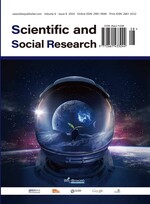Abstract
The research on the influence mechanism of hot search topics on urban communication helps understand the media power and discourse practice of urban image construction in the era of short video. Therefore, this paper takes 17 cases of Chinese hot search urban topics from 2020 to 2024 as the research object and extracts one outcome variable and seven explanatory variables on urban hot search topics based on existing literature. Through the qualitative comparison of clear sets (QCA) analysis, it is found following trending topics has become a major way and pattern of urban public opinion discourse generation on short video platforms. On the one hand, the discourse is connected by the extension of urban hot search topics, and the spontaneous expression of netizens’ demands has exceeded the topic itself and has become the public’s concern. On the other hand, institutional media and mainstream media form event characterization through macro interpretation of hot topics, which often relate to urban governance and government administration, and further affect urban communication.
References
Mao ZW, 2016, Qualitative Comparative Analysis (QCA) and Journalism and Communication Studies. The International Press, 2016(04): 6–25.
Rihaux B, Larkin C, 2017, QCA Design Principles and Applications: A New Approach beyond Qualitative and Quantitative Research (Translated by Du Yunzhou and Li Yongfa). China Machine Press, Beijing, 19.
Rihaux B, Larkin C, 2017, QCA Design Principles and Applications: A New Approach beyond Qualitative and Quantitative Research (Translated by Du Yunzhou and Li Yongfa). China Machine Press, Beijing, 32.
Zeng XM, Dai JR, 2020, Research on News Inversion, Public Opinion Generation Mechanism and Governance Path in the Context of New Media: A Qualitative Comparative Analysis (QCA) Study on Typical Inversion News Events from 2014 to 2020. Social Science, 2020(07): 168–184.
Fu N, 2020, Master’s Degree in Media Logic Analysis of Environmental Protests in China: A Multi-Case Comparative Study of Environmental Protests from 2003 to 2018, thesis, Graduate School of Chinese Academy of Social Sciences. https://doi.org/10.27642/d.cnki.gskyy.2020.000236
Wu D, 2011, Discourse Power: The Rise of Public Opinion Reflected by Internet Hot Words. News World, 2011(05): 115–117.
